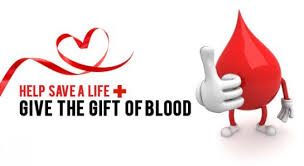When Monmouth Junction resident Ruth Ann Burns was diagnosed with acute myeloblastic leukemia (AML), she didn’t have any symptoms.
The 77-year-old recalls asking, “How could this happen?”
Leading up to her diagnosis, Burns’s primary care doctor noticed her white blood cell count going up and recommended monitoring it. When there was no change, Burns was referred to the Hematologic Malignancies Program at Rutgers Cancer Institute of New Jersey and Robert Wood Johnson University Hospital, an RWJBarnabas Health facility, for further testing, where she received her diagnosis.
Burns began two different chemotherapy treatments to kill the cancer cells as quickly as possible, but the chemo also rapidly reduced her white and red blood cells and platelets. She began to require frequent blood transfusions, needing blood or platelets three times per week.
Her rare A negative blood type coupled with the impacts the COVID-19 pandemic has had on blood supply made it much more difficult for her to get the blood and platelets she needed.
Actively involved at Rutgers University, Burns reached out to her network at the Rutgers University Alumni Association and the Eagleton Institute of Politics. Calls for blood donations went out, and the Rutgers community was able to rally to help get Burns the blood donations she needed.
Today, Burns is in partial remission and still receives transfusions about twice a month. Without the transfusions, she would not have gone into remission.
According to the American Red Cross, every two seconds someone in the U.S. needs blood or platelets due to cancer treatments, childbirth, car accidents and other trauma events, but blood collection in New Jersey is down over 25% since late summer due to the continued effects that COVID-19 has had on donation rates.
Hospitals rely on the support of individuals to provide much of the blood they use and need the community’s help now to address this blood shortage and prevent potential delays in lifesaving medical care for patients in need.
January is National Blood Donor Month. For information on how to donate blood or to host a blood drive, visit www.redcrossblood.org/donate-blood/how-to-donate/how-blood-donations-help/blood-needs-blood-supply.html
* This information was provided by R&J Strategic Communications.

